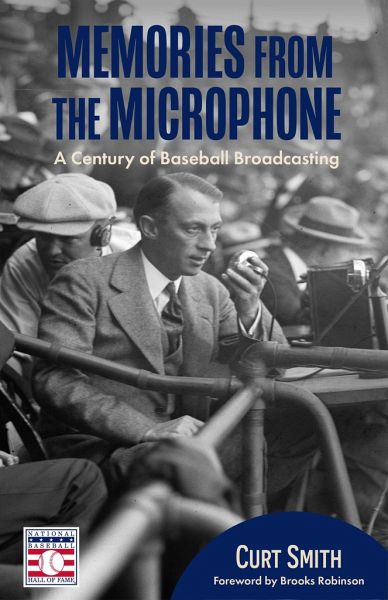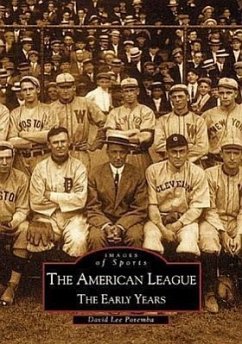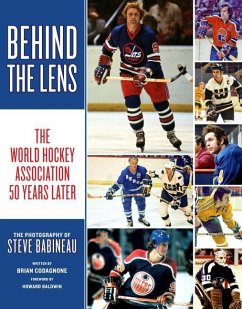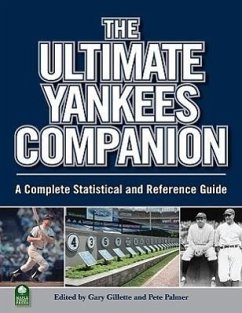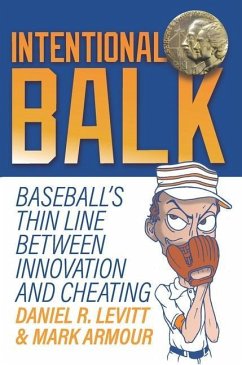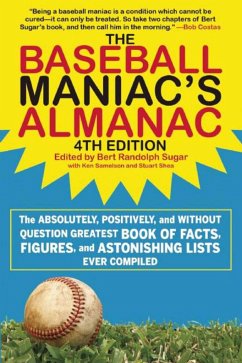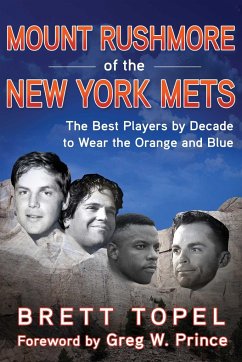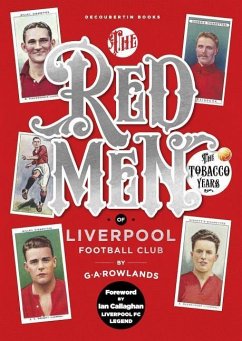Versandkostenfrei!
Versandfertig in über 4 Wochen
Weitere Ausgaben:

PAYBACK Punkte
8 °P sammeln!




Timed for the centennial of the first game to be broadcast on radio, Memories from the Microphone: A Century of Baseball Broadcasting will celebrate the larger-than-life role that radio and TV announcers have had on our enjoyment of the national pastime.
Curt Smith is a prolific author and baseball's leading radio/television historian who wrote more speeches than anyone for former President George H.W. Bush-The New York Times terming his work "the high point of Bush familial eloquence." USA Today calls him "the voice of authority on baseball broadcasting." To Chicago Cubs announcer Pat Hughes, Smith is "simply one of the best baseball historians, ever." Memories From the Mike: A Century of Baseball Broadcasting is his eighteenth book. In 1998, Smith joined the University of Rochester faculty as Senior Lecturer of English. He teaches Public Speaking using video, text, and lecture, and Presidential Rhetoric, etching how U.S. presidents from Calvin Coolidge to Joe Biden communicated through language and delivery. He is also a Gannett News Service columnist, analyzing politics, culture, and sport through what pollster John Zogby calls "his mastery of language." Smith began his career as a 1970s Gannett reporter, 1980-82 The Saturday Evening Post Senior editor, and 1983-89 speechwriter for several Cabinet members of the Reagan Presidency. He was a 1989-93 White House speechwriter for President George H.W. Bush, addresses including the "Just War" Persian Gulf speech; address on the USS Arizona Memorial site on Pearl Harbor's fiftieth anniversary that Senator John McCain termed "moving ... thick with emotion"; and later Bush's 2004 emotional eulogy to Ronald Reagan. In 1992, Smith released the updated version of Voices of The Game, the history of baseball radio/TV that Publisher's Weekly called "monumental." It became a Smithsonian Institution series that The Washington Post styled "a mesmerizing memory lane" and then highly-rated three-part 1994-95 ESPN TV series. Since then, Smith has hosted other Smithsonian, National Baseball Hall of Fame and Museum, XM Satellite Radio, and a decade-long National Public Radio Upstate New York series Perspectives, named by Associated Press "Best in New York State." Smith's most recent book is The Presidents and the Pastime. Others include Pull Up a Chair: The Vin Scully Story; George H.W. Bush; A Talk in the Park; What Baseball Means to Me; Windows on the White House; and Mercy!, a tribute to Fenway Park. He has contributed to the Cambridge Companion to Baseball, the National Museum of American Jewish History's Chasing Dreams, and more than a dozen volumes of the Society of American Baseball Research-and addressed, among others, the White House Historical Association, Cooperstown Symposium on Baseball and American Culture, and Great Fenway Writers Series. Smith has written about baseball or politics for, among other publications, American Enterprise Magazine, The Boston Globe, Newsweek, The New York Times, Reader's Digest, Sports Illustrated, The Sporting News, and The Washington Post. He has appeared on network radio/TV programs including ABC's Nightline, Armed Forces Radio, BBC, CBS This Morning, CNBC, CNN, ESPN, Fox News Channel, History Channel, MSNBC, Mutual Radio's Jim Bohannon and Larry King, and Radio America. Born and raised in Upstate New York, the State University of New York at Geneseo graduate was elected in 1993 to the Judson Welliver Society of former White House speechwriters. Smith is a member of the Baseball Hall of Fame's Ford C. Frick Award broadcast committee and the National Radio Hall of Fame steering committee. He lives with his wife Sarah and two children in Upstate New York.
Produktdetails
- Verlag: Turner Publishing Company
- Seitenzahl: 318
- Erscheinungstermin: 3. August 2021
- Englisch
- Abmessung: 213mm x 140mm x 18mm
- Gewicht: 386g
- ISBN-13: 9781642506754
- ISBN-10: 1642506753
- Artikelnr.: 61342212
Herstellerkennzeichnung
Libri GmbH
Europaallee 1
36244 Bad Hersfeld
gpsr@libri.de
Für dieses Produkt wurde noch keine Bewertung abgegeben. Wir würden uns sehr freuen, wenn du die erste Bewertung schreibst!
Eine Bewertung schreiben
Eine Bewertung schreiben
Andere Kunden interessierten sich für





